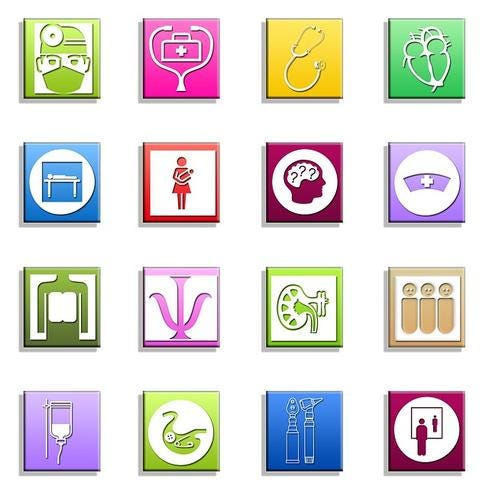Samsung Eyes Health WearablesSamsung Eyes Health Wearables
Samsung debuts software and open hardware platforms for wearables, aims to foster development of new products while helping people take charge of their health.


15 Apps For Healthy Living
15 Apps For Healthy Living (Click image for larger view and slideshow.)
Samsung this week revealed the Samsung Digital Health Initiative, an open hardware and open software platform the company envisions as the starting point for consumers to use technology to monitor and track their health. Though the reference hardware resembles a smartwatch or fitness band, the Samsung Digital Health Initiative is not about mobile alerts or voice commands. Instead, it serves as a nerve center that will collect and analyze data points and eventually provide insight.
There are two major components to the SDHI: hardware and software. The open hardware platform, called the Simband, is a reference design for developers. It won't be sold to consumers; rather, it is meant to serve as a platform that developers can use to create and test their apps. It is modular by design. Samsung hopes the Simband will let developers and hardware makers see the potential behind the initiative and go on to create their own products based on the open technologies therein.
Of course, hardware doesn't do much without software, so Samsung is also offering the Samsung Architecture for Multimodal Interactions (SAMI) platform. SAMI is open, cloud-based software that can pull in and analyze data from the Simband. The data is stored securely in the cloud, and in consumer-grade products, it allows only the individual generating the data to access it.
[Smartphone-distracted walking? There's an app for that. Read Smartphoning While Walking: App Says Look Up!]
The two open platforms are designed to encourage those with big ideas to jump into the game and help them bring products to market faster.
"Samsung's Digital Health Initiative provides an exciting opportunity for the brightest minds in the technology world to come together to develop the products that will, for the first time, put individuals in the driver's seat in understanding their own health and wellness," Young Sohn, president and chief strategy officer for device solutions at Samsung Electronics, said in a press release.
Samsung isn't just providing the technology: It's also ponying up some cash. As part of the Samsung Digital Health Initiative, Samsung announced the Samsung Digital Health Challenge. The challenge is backed by a $50 million investment fund reserved for developers and innovators who are targeting the digital health area. Samsung said the goal of the fund is to "stimulate creative new approaches to digital health and Samsung's open platforms."
At first blush, the whole package appears to have its heart in the right place. Samsung took the first step towards ushering in a personal digital health revolution, and it clearly hopes others will join it for the journey. Samsung revealed little about the software component, however, and the term "vaporware" started floating around online conversations about the SDHI soon after the announcement.
The problem is Samsung has been here before. Case in point: its Tizen operating system (which is probably what's buried underneath the SAMI platform). Samsung has been developing Tizen for years, and it has yet to really take off. The platform may be powering the company's Gear-branded smartwatches, but it was expected to show up in smartphones as far back as 2012.
The bottom line: Samsung sometimes starts big and finishes small. Maybe the Samsung Digital Health Initiative will succeed where other efforts have not. The outcome depends on you.
IT is turbocharging BYOD, but mobile security practices lag behind the growing risk. Also in the Mobile Security issue of information: These seven factors are shaping the future of identity as we move to a digital world (free registration required).
About the Author
You May Also Like






